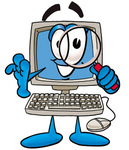Troubleshooting a Mechanical Hard Disk Drive
Mechanical Hard Disk Drives (HDDs) have moving parts and these parts start wearing from the first time when the computer is used and whilst mechanical hard disks can fail from use over time, there are also other reasons for failure.
Any knocks or bumps on the desk can make the HDDs heads crash onto the platters and this can cause damage to the head and any data that the head hits. Think of this as similar to an old gramophone record that receives a bump the needle will jump and possibly skate across the record leaving a scratch in its wake. This is what happens to the heads on a mechanical HDD.
In this case, the heads aren’t actually in contact with the platter as they “hover” approximately 3 nm (nanometers) above the surface. But a bump or vibration from a heavy footstep may make the head or heads (some HDD’s have multiple heads with multiple platters) hit the surface and bounce.
Now 3 nm is a tiny gap which is achieved due to the fast rotation of the HDD, which rotates at 5400 or 7300 rpm (revs per minute). As an example, a particle of smoke is about 4 times as large, hence why mechanical HDD’s are sealed so that dust, smoke and any other foreign bodies cannot get “stuck” between the head(s) and the platter(s).
Common Signs a Mechanical Hard Disk Drive is Dying
So, how can we tell if a mechanical hard disk drive is dying? There are several signs that an HDD is on its way out and these are listed below.
- The very commonly heard clicking sound
- The computer won’t boot
- With a new system update, normal applications stop working
- A new driver is loaded and the system crashes
- The computer is very slow at booting and very slow at opening programs or getting data from the HDD
- Messages such as “No OS” or “No boot Disk” or, in Apple Macs, a manila folder with a question mark appears. These are all ominous signs that the HDD has failed or is failing.
- With Windows PCs, when booting the Operating System may automatically try and run chkdsk (check disk) as it finds errors on the HDD and needs to correct them.
- Some programs won’t open as they did or data is missing or won’t open in the desired program – such as a Word document which is all hieroglyphics. Again ominous signs that your HDD is dying.
- Frequent crashes of the Operating System is another bad sign
- Folder or file names which appear scrambled
- Frequent messages on the screen which are usually cryptic when trying to do something
- Files of programs which are no longer there where you thought they should be
- Long wait times when reading or writing to files or accessing programs
- The HDD’s light goes out for long periods or there is no mechanical noise from the HDD.
- The HDD is a lot noisier than usual – this is different to the clicking sound
Backup Regularly
So before the inevitable happens backup your data now yourself and then seek professional help from Affordable Computer Repairs in Brisbane to assist with what happens next. In some cases, it may be too late to “clone” the HDD or the computer is past it’s “use-by date” (approximately 5 years) and a new computer is usually recommended in this instance.
Contact us at Affordable Computer Repairs and Service or on 3397 1215 or 0409 974 707 so we may be able to assist you before the big melt-down.
